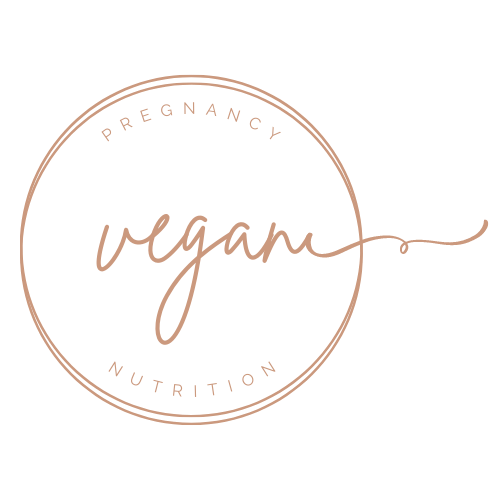What vegan food is pregnancy safe? Here's what you need to know
written by Clarissa Hauber, edited by Maya Bach, MPH, RDN
As a vegan mom-to-be, you might be spending a lot of time reading food labels, ensuring that you're meeting your daily nutrient needs. So. Many. Labels.
But you might not be questioning the safety of everyday foods you enjoyed before your pregnancy.
Pregnancy is a vulnerable time for your body. You are dealing with heartburn, swollen ankles, and constipation (so fun!); your immune system is weakened.
As a result, you're more susceptible to foodborne illness (aka food poisoning). Some of the foods you may have loved before your pregnancy might pose a greater health risk for your pregnant body.
Because what you eat matters now more than ever, it's essential to consider food safety as a vegan mama-to-be so you can decide what to eat or drink. We each have our own unique risk tolerance levels, and what you choose to eat or avoid will likely be different than someone else. Knowing the risks can help you make informed decisions that feel good for you. Remember, there is rarely a one-size-fits-all answer.
1. Tahini
Tahini can be a fantastic, nutritious, and protein-full ingredient to consume. Yes, this sesame-seed paste is safe to consume during pregnancy. However, avoid buying in bulk and aim to buy tahini made by reputable, known brands. The risk of experiencing food poisoning from tahini is significantly low and doesn't warrant you to avoid this healthy, nutrient-rich food. Try combining tahini, a little water, and lemon juice for a satisfying salad dressing, or spread tahini on top of whole grain bread with sliced strawberries for an iron-boosting treat!
2. Tea
It depends. Because there is a lack of testing surrounding safe use during pregnancy, some herbal teas may be unsafe to consume. Turmeric, for example, when consumed in large quantities or concentrated doses, may lead to uterine bleeding or contractions. Despite herbal teas marketed toward pregnancy, we don't have enough evidence to suggest they're entirely safe. On the other hand, non-herbal teas like green or black tea are harvested from different parts of the tea plant. As a result, they're generally safe to consume in moderation. They typically contain a small amount of caffeine, and during pregnancy, enjoy no more than 200 mg of caffeine per day. One cup of green tea, for example, contains 30 - 50 mg of caffeine per cup. However, if you're sensitive to caffeine, you may want to skip non-herbal tea altogether. Consider making a DIY pregnancy-safe drink by combining lemon, fresh ginger, and hot water or adding soy milk to warm water with cinnamon and nutmeg. When looking for tea during pregnancy, be sure to research whether it is an herbal or black tea first!
3. Kombucha
There is some debate on this. Kombucha is a wildly popular fermented tea you can purchase in-store or make at home. While kombucha is thought to have multiple health benefits, the evidence supporting these benefits is thin at best. Due to the natural fermentation process, kombucha contains alcohol, the amount of which varies by brand. Kombucha is also generally sold as an unpasteurized product, meaning it hasn't been heat-treated to kill harmful bacteria, such as listeria and salmonella. While drinking kombucha during pregnancy is extremely low risk, it's generally recommended to avoid it. If you choose to drink it, buy from a reputable brand, avoid homemade, and stick to no more than a few ounces per day.
4. Romaine Lettuce
Generally speaking, yes! While there have been foodborne illness outbreaks linked to lettuce, this doesn’t mean that lettuce currently poses any direct threat to you or your baby. Check the FDA website regularly for any recalls/updates on romaine lettuce. If there are no recalls, it is safe to consume. Be sure to wash thoroughly, remove any wilted parts, and store properly in the fridge. Shred lettuce and add to lentil tacos or black bean burgers.
5. Sprouts
Avoid these. Due to being packaged in such a moist, airtight container, sprouts carry a higher risk of having harmful bacteria. Whether they’re sprouted at home or store-bought, it's best to avoid sprouts to reduce your risk of foodborne illness during your pregnancy. Consider using fresh basil, parsley, or mint leaves, to spice up your meals.
Bottom Line:
Each of these foods carries their own set of risks and benefits. It's important to understand the potential risks associated with them to make an educated decision for yourself about whether or not to incorporate them into your diet during pregnancy. No two vegan prenatal nutrition plans (or mamas) are alike!
Sources:
Ready to feel good about YOUR vegan pregnancy?
Join like-minded women inside the Vegan Pregnancy Collective to get the tools you need so you can stop worrying and wasting time Googling all things vegan pregnancy!







